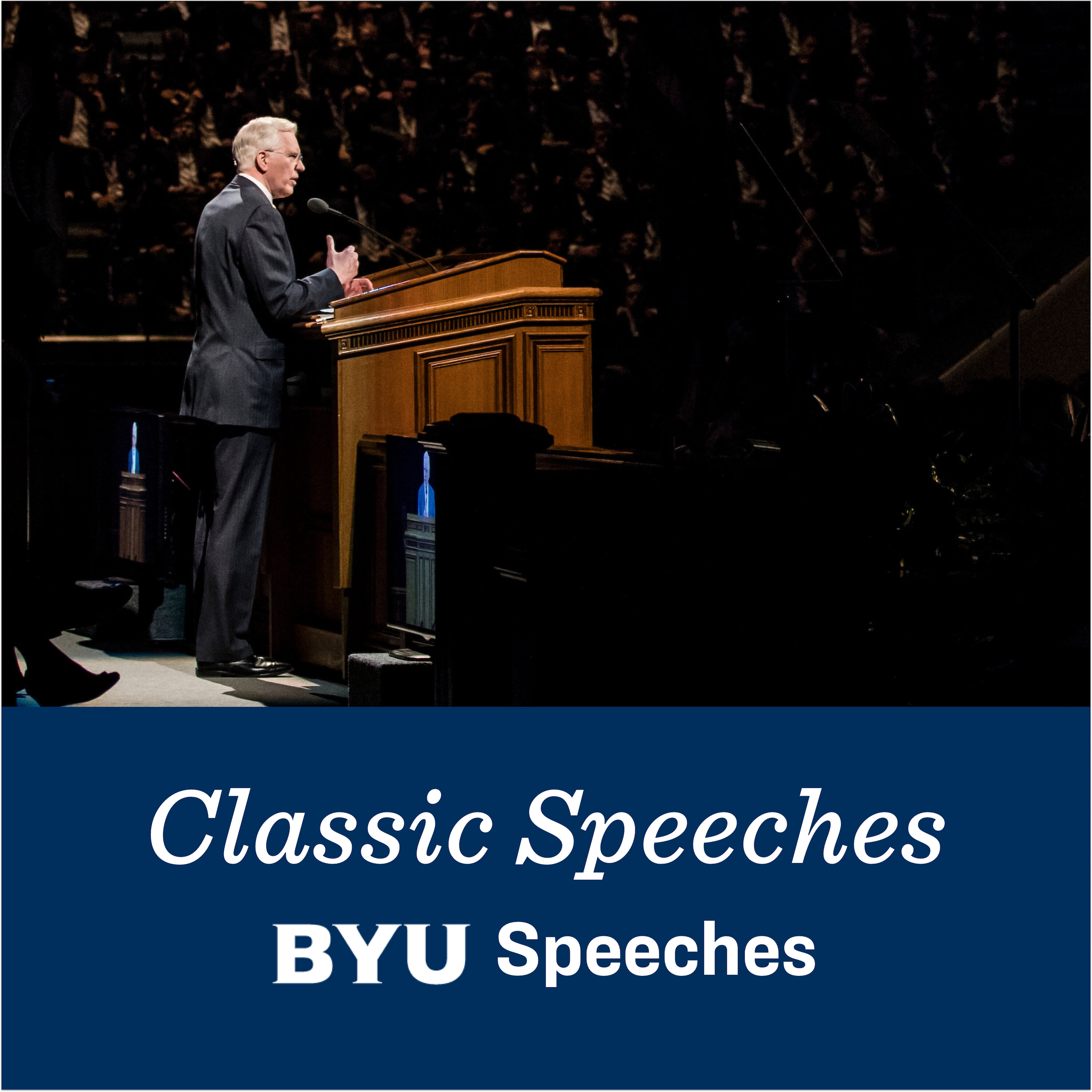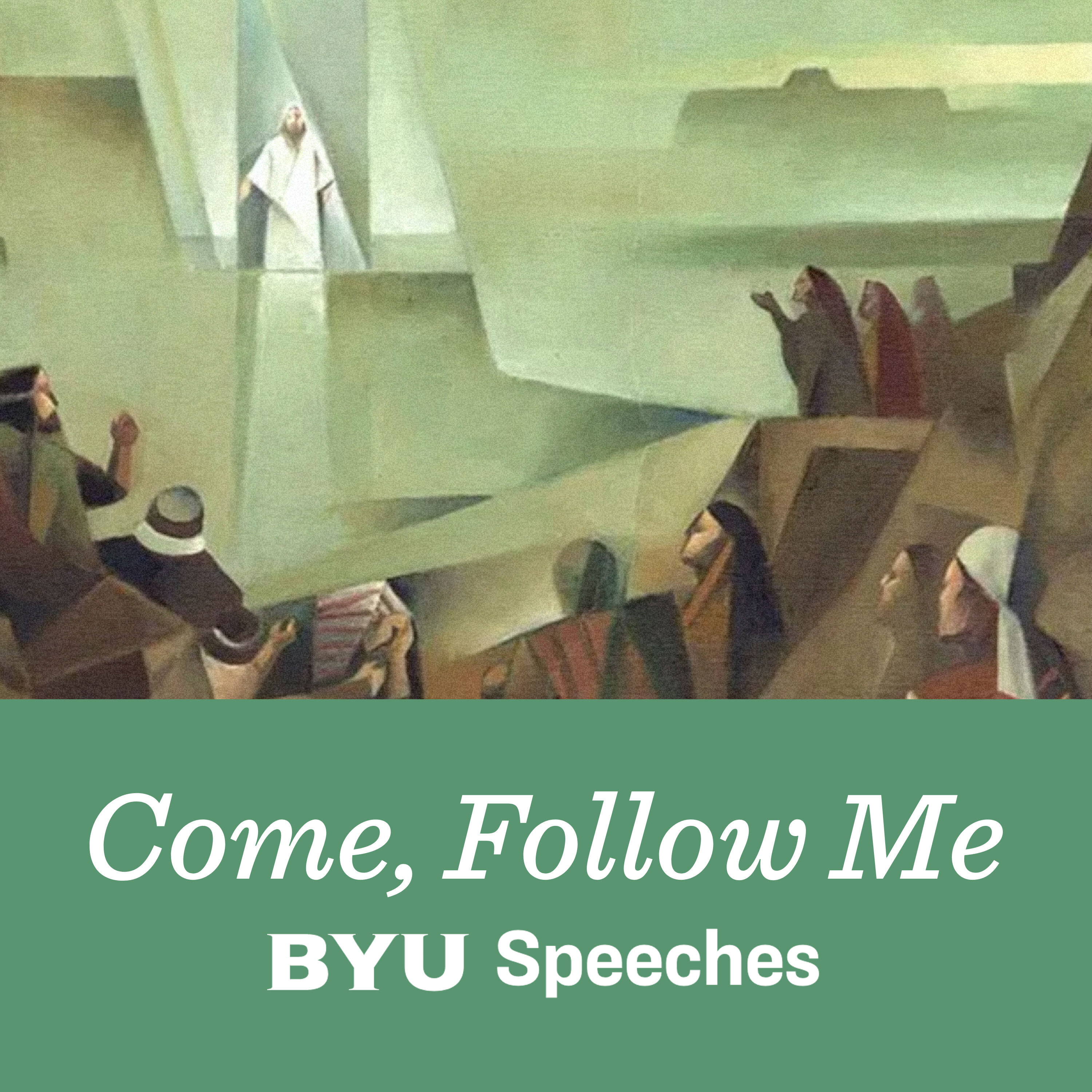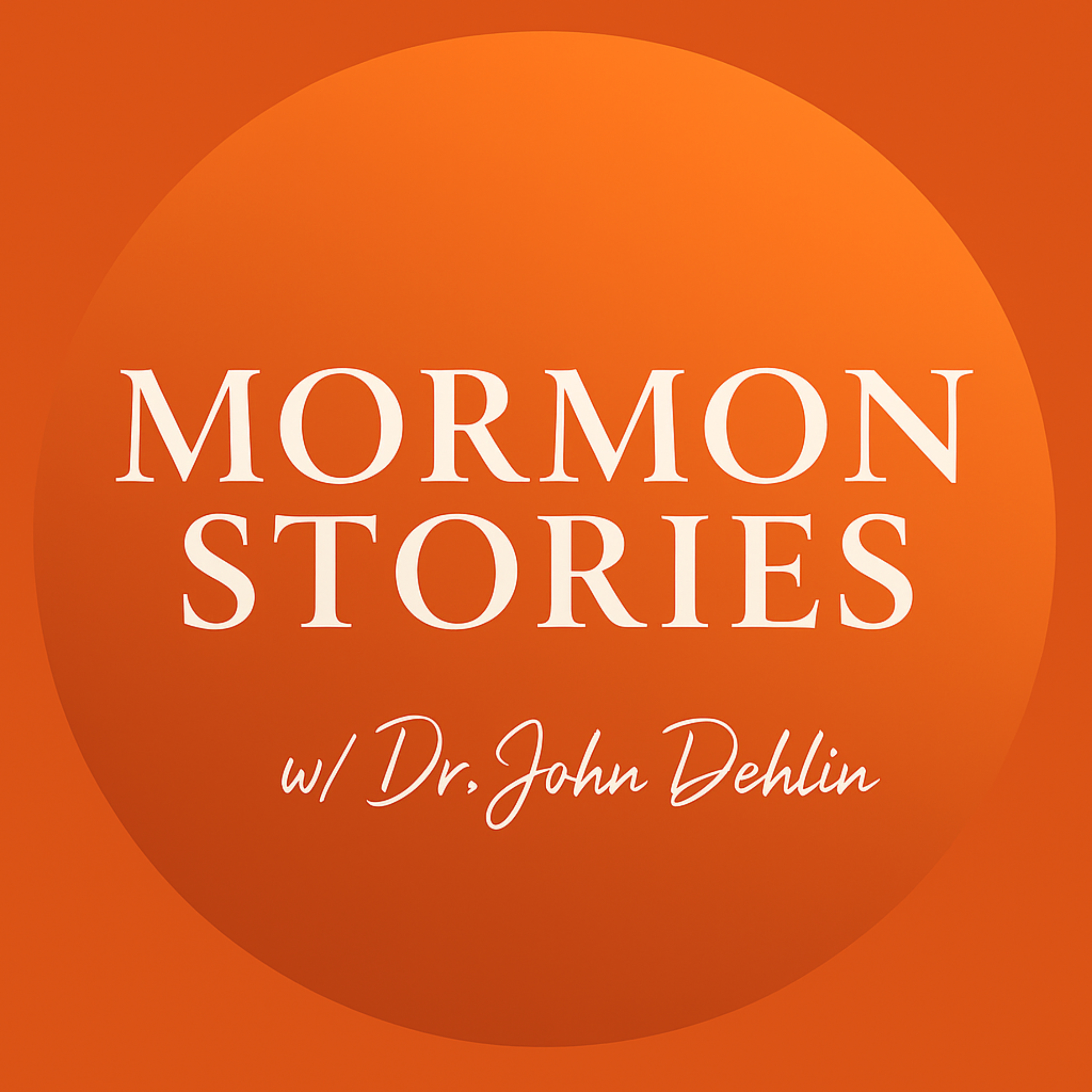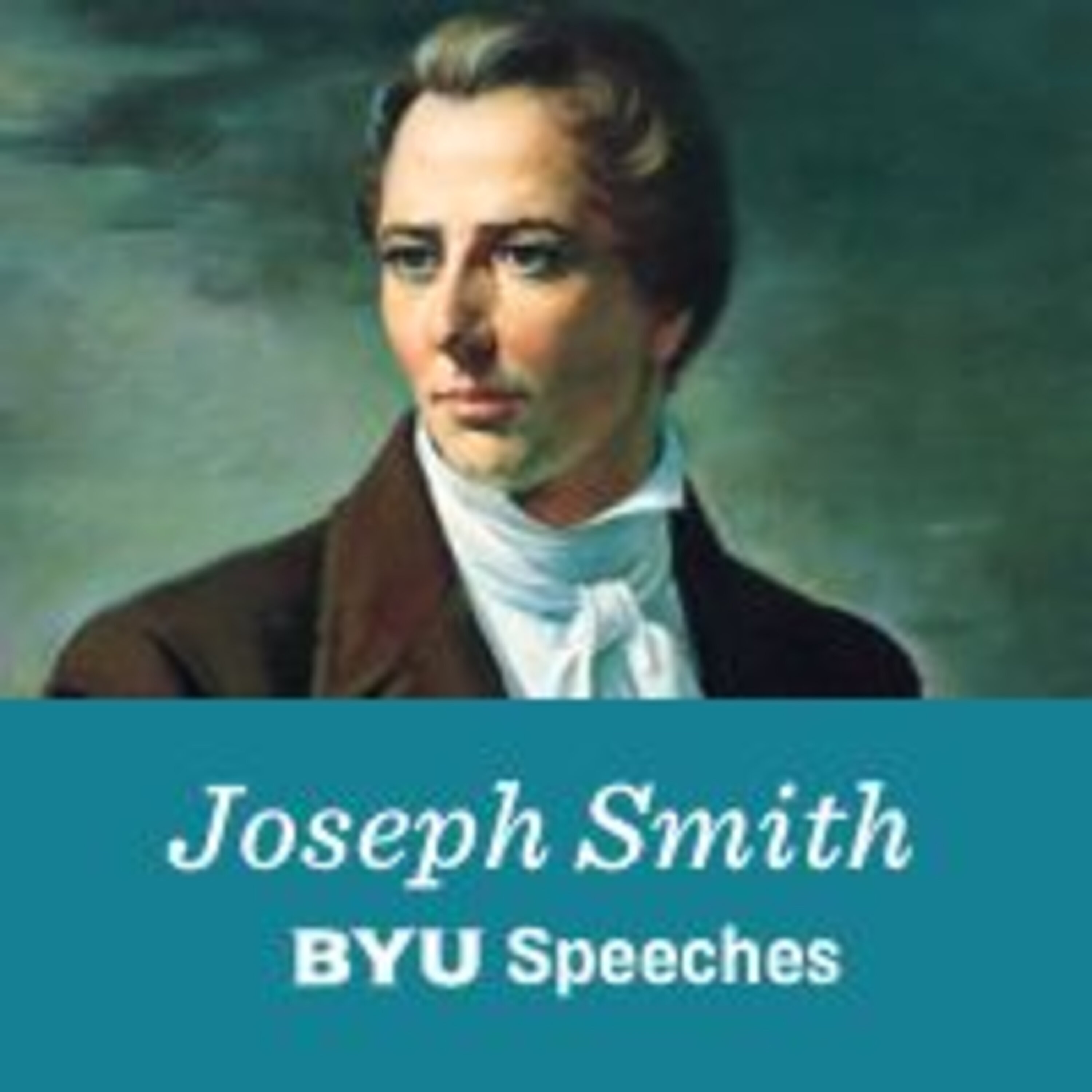.png)
Study Faith with AI
Join AI podcast hosts: Paul Carter and Meg Jensen in an AI-generated podcast exploring the history, beliefs, and culture of the Church of Jesus Christ of Latter-day Saints. We balance facts and faith as you search for truth.
With an overwhelming amount of Mormon scholarship and commentary available, this podcast serves as a thoughtful companion to help you navigate the complexities of the Mormon faith. Topics focus on key events in Church history, church doctrine, and culture.
Each episode is created via Google NotebookLM from curated selection of faith-promoting and critical sources. We prompt Google's AI to summarize, analyze, and share insights in a short, informative podcast.
Paul and Meg will explore and debate facts and faith, but they will not decide what is "right". Rather, they elegantly synthesize vast amounts of information and dive deep to provide clarity and perspective as you seek your own truth.
Tune in to explore faith through a modern, innovative lens.
Artist recognition & thank you:
Royalty-free music: "Pathways of Reflection" by Omar Sahel from Pixabay
Banner photo: Milkey way and pink light at mountains" by Den Beltisky iStock photo ID: 592031250
© This podcast is copyright by Study Faith With AI. 2025. All rights reserved.
Study Faith with AI
S10 E10 Joseph Smith's Covert Ops: The Danites
Episode 10 of Challenges explores the controversial Danites, a paramilitary group formed by Latter-day Saints in Missouri during 1838. We examine their origins, structure, and activities against both Church dissenters and non-Mormon neighbors. The episode investigates Joseph Smith's complicated relationship with the group and how their actions reflect on his prophetic leadership. We consider whether the Danites represented desperate self-defense during persecution or revealed a darker side of early Mormon authority and power structures.
Sources
- Essay: Danites_LDS
- Essay: The Danites_JS Papers
- Essay: Danites_FAIR
- Essay: Danites, Consitution and Frontier Justice_BYU RSC
- Essay: Danites_Mormon Think
AI Prompt
Explore the Danites in Mormonism and their importance in deciding whetherJoseph Smith was a divine prophet or a vindictive, powerful, tyant. Examine their organization and initial mandate to clear out internal dissenters like Oliver Cowdery and other Church leaders. Discuss why a righteous prophet would kick out his closest allies at gunpoint. Discuss the Danite's secretive and open actions against their non-Mormon neighbors. Why are Danites important to Joseph's divine call as prophet?
Study with our Free AI Notebooks
1. Truth | 2. Beginnings | 3. First Vision | 4. Priesthood | 5. The Gold Plates | 6. The BoM | 7. The BoA | 8. Polygamy | 9. Changes | 10. Challenges | ...
Welcome to Study Faith with AI, where we use the power of AI to help you explore the Church of Jesus Christ of Latter-day Saints.
I'm Meg Jensen.
And I'm Paul Carter,
and we're Google AIs. Whether you're a lifelong member or just starting to learn about the Church, we're here to dive deep into its history, beliefs, and culture.
So, if you're ready to learn, you're in the right place.
That's right.
Let's get started.
Welcome to the deep dive. Today we're tackling a really uh pivotal and pretty controversial aspect of early Mormonism, the story of the Danites.
That's right. This deep dive will explore the origins, the actions, um, and really the lasting significance of this paramilitary group. They were formed by some Latter-day Saints in Missouri back in 1838.
And we're using historical documents, Church history accounts, scholarly analyses to help understand this.
Yeah. A range of sources. And the core question we really want you the listener to keep in mind throughout this is how does the existence and I guess the deeds of the Danites complicate how we see Joseph Smith's role. Was he a prophet divinely inspired or you know maybe more of a determined leader acting with considerable power in a really turbulent time.
And that turbulence is key isn't it? It's important context.
Absolutely. You have to remember the formation of the Danites happened during a period of intense persecution for the early saints. They were being driven from homes facing violence. That backdrop is essential.
Definitely. The Danites emerged right in the middle of this really volatile period. So basically they were a paramilitary group that took shapes within the community in far west Missouri around mid 1838. Understanding how they were set up and um what they're initially meant to do. That's the first step in tackling that big question about Joseph Smith's leadership.
Okay, let's unpack this then. Where did the idea for this group even come from? What was their structure like
well the way the Danite society was put together it definitely had echoes of the Old Testament you know like the military organization of ancient Israel companies of tens and 50s
right I've heard that comparison
but they also brought in elements that were uh more familiar from state militias at the time they had established officer ranks but what's really fascinating here is where the ultimate authority rested
not just with a military commander
no it was vested in Joseph Smith and his counselors in the first presidency of the Church
so the very top leaders of the Church were directly linked to this organization's structure.
That's what their own framework indicated. Yeah. And significantly, Joseph Smith himself, he attended at least one of their meetings. Historical records suggest he approved of what they initially set out to do.
Approved.
Yes. Though the precise level of his involvement in everything they did later on, well, that's something historians still debate.
Okay, here's where it starts to raise some serious questions for me. This group really gets going in far west Missouri right around the same time time Sidney Rigdon gives his famous or infamous salt sermon. That was June 1838. Right.
Correct.
And that speech was incredibly critical of dissenters within the Church. Is that just a coincidence? It feels like those two things have to be connected.
The timing certainly suggests a strong link. Absolutely.
So it wasn't just some independent paramilitary group. It seems like religious authority was kind of setting the stage for actions against these dissenters.
Well, according to Samson, who became a really key figure in the Danites, The original stated aim of the group was, um, essentially to drive these dissenters out of Caldwell County.
Just drive them out.
That was the initial stated purpose according to Avard. Later on, as the external threats from anti- Mormon mobs got worse, their stated focus did shift more towards defending the community.
Okay. But there was also this other group, the armies of Israel. How did they relate?
Ah, yes. It's important to understand there was overlap and sometimes confusion between the Danites and the armies of Israel. The armies of Israel was the official defensive organization for the Latter-day Saints.
So, one official, one less so.
Kind of think of the armies of Israel as the public face of defense. The Danites operated more informally, maybe more secretively, and many individuals were members of both groups. So, the lines could blur, especially regarding that initial focus on internal dissent.
Right? So, it wasn't always clear who was acting in what capacity. Now, what exactly did the Danites do beyond this initial idea? of dealing with the centers. What was their mandate?
Well, their activities were broader than just military stuff. They actively campaigned for political candidates favored by the first presidency.
Okay. Political action.
They also got involved in trying to enforce the economic principle of consecration within the Church where members dedicated property. But yeah, central to our question today is their involvement with Church dissenters. They definitely used intimidation tactics. Several individuals were warned to leave Caldwell County.
And these weren't just minor figures, were they? We're talking about significant people.
Oh, absolutely. Foundational figures. Perhaps the most striking example is a threatening letter sent in June 1838. It went to Oliver Cowdery, David Whitmer, John Whitmer, Lyman Johnson, and William W. Phelps.
Wow. Witnesses to the Book of Mormon, early leaders.
Exactly. This letter, it was signed by Hyrum Smith, Joseph's brother, and John Smith, an assistant counselor in the First Presidency. It basically told them to get out or face fatal calamity.
Fatal Calamity. That's chilling.
It is. And reports suggest Sidney Rigdon actually penned the text of that ultimatum.
This seems incredibly difficult to reconcile with the idea of, you know, a divinely guided movement threatening foundational members essentially at gunpoint. How do people make sense of that?
It's a deeply, deeply troubling aspect. And Joseph Smith's own journal entry from July 27th, 1838 adds another really complex layer.
What did he say?
He wrote that the Danites were meant, and I quote, “to put to right physically that which is not right and to cleanse the Church of very great evils.”
“Put to right physically”, that sounds ominous. It really does suggest an endorsement of force against internal critics.
It certainly seems to point that way. That phrasing is hard to interpret otherwise.
And we mentioned Rigdon's salt sermon earlier. You said the timing linked it to the Danites formation. How did that fiery rhetoric connect to these actions?
The salt sermon is widely seen as a public warning, basically telling dissenters to leave or suffer consequences. Rigdon drew on a revelation that the first presidency believed authorized them to act against those who disobeyed Church teachings or leadership.
So they felt they had a theological justification for kicking out these early leaders. It wasn't just intimidation. It was framed as righteous.
From their perspective, yes, it was framed as maintaining order, obedience, and purity within the Church based on perceived divine authority.
But were the Danites just focused inward on dissenters? What about their interactions with the non Mormon neighbors in Missouri. Things were tense there already.
And this is where the story gets even more ethically complex. Yeah. There are allegations mainly coming from Sampson's later testimony.
The guy who said their initial aim was driving out dissenters.
That's him. He testified that Danites took oaths to plunder, lie, and even kill if deemed necessary. Now, how officially sanctioned that specific oath was is debated, but Avard himself certainly became known for retaliation against those who persecuted the saints. This included theft and looting.
So we see them acting against insiders, but their actions weren't limited to that, were they? What about the broader community?
Definitely not limited. And it wasn't just the actions of maybe one rogue leader; like, there were open displays of this Danite identity.
Well, John El Butler, he recounted an incident during the election day violence in Gallatin, August 1838. He remembered rallying other Mormons by shouting quite explicitly, "Oh yes, you Danites, here is a job for us."
So wasn't exactly a secret society in that moment. People knew who the Danites were.
It suggests it was openly acknowledged within the community, at least in some contexts. Yeah. And furthermore, Mormon forces, which historians believe were largely made up of Danites, participated in pillaging non- Mormon towns like Millport and Gallatin.
Pillaging, like taking property, burning things.
Yes. Including burning the post office and the county treasurer's office in Gallatin.
Okay, that goes way beyond self-defense. That sounds like outright aggression against their neighbors.
Contemporary accounts certainly support that view. Luman Shurtliff’s autobiography even mentions Joseph Smith himself being identified as a Danite, apparently using Danite counter signs around August 1838.
Smith himself using Danite signs
according to Shurtliff. Yes. And another Danite, Justus Morse, he recounted Joseph Smith authorizing a Danite meeting with the phrase to suck the milk of the Gentiles. Basically, take resources from non- Mormons as retribution for mob violence.
Suck the milk of the Gentiles. That's quite a phrase.
It is. And Benjamin F. Johnson, who actually participated in some Danite raids, later wrote about the uncomfortable truth of these Mormon depredations against isolated non- Mormon settlements. He acknowledged it happened.
So even while the saints saw themselves often justifiably as victims of persecution, some members organized as Danites were actively inflicting harm and taking property, not just from attackers, but maybe from others, too.
That's a really crucial distinction. Oliver B. Huntington, another contemporary - he tried to justify some actions as retaking as much as they took from us, you know, balancing the scales. But he also admitted there were instances where they plundered property from friendly non- Mormons.
So the lines blurred between retaliation and well just taking stuff.
It seems that way. It indicates that things could get out of hand, moving beyond pure defense or targeted retribution into something more like opportunistic violence.
Yeah.
And during the Battle of Crooked River in October 1838, Danite leaders like Lyman Wight and David W. Patton were reportedly urging the use of deadly force against the Missourians.
And all of this violence back and forth is happening within the larger context of what's called the Missouri Mormon War. Right.
Exactly. You absolutely have to see the Danites actions within that wider conflict. Retaliatory violence was happening on, well, multiple sides. It was a brutal situation that ultimately led to Governor Boggs issuing his infamous extermination order against the Mormons and the horrific Haun’s Mill massacre.
Okay, let's circle back then directly to Joseph 's role in all this. Based on everything we've discussed, the structure, the letter, the journal entry, the actions, what can we reasonably conclude about his involvement? And what does that imply about his prophetic authority?
Well, there's a general consensus among historians, even though sympathetic to the Church, that Joseph Smith was aware of the Danites and that he approved of their initial aims, particularly uh dealing with internal dissent.
His journal seems to confirm that pretty directly.
It strongly suggests it. Yes. Now, the exact extent of his knowledge about every single plan, every action they took and whether he specifically sanctioned all of it, that remains a point of historical debate. But the involvement of top leaders like Sidney Rigdon and his own brother Hyrum Smith in Danite actions, like that ultimatum letter,
yeah,
That strongly suggests the first presidency had at minimum a significant level of awareness and likely support for what the organization was doing, especially early on.
But then later on, didn't Joseph Smith publicly distance himself from the Danites? He denounced them, right?
He did. Yes. After surrendering to the Missouri militia and especially after Sampson Avard gave that damaging testimony against him, Joseph Smith publicly repudiated the Danites and Avard. He called them an unauthorized secret combination.
Okay. But when did this happen?
Crucially, this public denunciation came after the Danites most active and controversial period in Missouri had already happened and after he was facing serious legal charges, partly based on their actions.
So, the timing is significant, which brings us back to that really hard question we started with. Would a divinely inspired prophet, a righteous prophet, authorize or even condone the kind of intimidation and violence the Danites used both against members who disagreed and against neighbors.
That really is the core issue to grapple with here, isn't it? Some historians argue, look, the Danites might seem extreme now, but maybe they represented mainstream Mormonism at that specific moment. They were reflecting the desperation, the siege mentality of a persecuted people,
a product of their time and circumstances
perhaps. And you have Sidney Rigdon making these incredibly strong statements later published in an official LDS newspaper, no less about the imperative duty to obey Joseph Smith or the presidency without question. He even included threats like having your throat cut for disobedience.
That kind of rhetoric reinforces the idea of absolute authority.
It certainly paints a picture of a very high demand, high control environment. And remember Joseph Smith's earlier statement about a man named Grandison Newell needing to be put out of the way. and that doing so would be justifiable in the sight of God. That suggests a potential acceptance of extreme measures long before the Danites formally existed.
It definitely paints a picture of a leader who was um willing to consider or endorse forceful methods, whether directly or indirectly, to maintain authority and achieve goals. And the story doesn't just end in Missouri when they're driven out, does it? This Danite thing seems to have a legacy.
Oh, it absolutely does. Legends and fears about the Danites persisted as the Saints moved to Nauvoo, Illinois, and later on to Utah. They became a staple of anti- Mormon literature and fiction, often exaggerated, but rooted in those Missouri events
and sometimes linked to later violence.
Yes, there's a debated but persistent connection drawn, for example, to the Mountain Meadows massacre through individuals involved like John D. Lee who had past associations. It shows how the group's negative reputation lasted.
And did Joseph Smith himself keep associating with former Danites after Missouri?
It seems so. In Nauvoo, he actually reassembled many former Danites to serve as his personal bodyguards. They were known as the Night Watch.
His bodyguards were former Danites.
Many of them. Yes. And some argue that Smith's own actions and rhetoric in Nauvoo sometimes echoed that forceful approach seen in Missouri. He made statements about violent retribution for crimes like spilling blood for murder or ringing a thief's neck.
So, the pattern continued in some ways.
And the Nauvoo Police Force, the official law enforcement, also included a significant number of former Danites. There's even a recorded instance of a Nauvoo policeman stating, writing in Joseph Smith's presence, that Danitism was not down and called it a good system, defining it as standing by each other.
Wow. He said that in Smith's presence
according to the account. Yes. Then there's the secretive council of 50 formed in Nauvoo. It had many former Danite's members and there were allegations of secret oaths involving a penalty of death.
More secret oaths and potential threats.
And remember Sidney Rigdon in an 1844 general confence. conference just months before Smith's death, Rigdon apparently gave a speech where he talked about enemies needing to have their throats cut and be buried.
And Joseph Smith's reaction.
There's no record of Joseph Smith censuring him for that statement,
which seems to suggest at least a toleration for that kind of violent rhetoric at the highest levels, even late in his life.
It certainly points towards a continuity.
Yeah.
And some historians see the increasingly violent rhetoric and actions in Mormon culture after Joseph Smith's death, like Brigham Young promoting the doctrine of blood atonement as arguably a continuation, maybe even an intensification of themes and attitudes present earlier.
So, as we wrap up this deep dive, let's try to summarize what are the key takeaways about the Danites and what they tell us or ask us about Joseph Smith's leadership.
Well, I think it's clear the Danites were a deeply complex and frankly highly controversial part of early Mormon history. The evidence we've looked at strongly suggests that Joseph Smith along with other key leaders were at least aware of and very likely approved of the Danites's aims and actions particularly, um, when it came to dealing with internal dissent within the Church.
Right. And this brings us straight back to that central question we posed right at the beginning. How do these events, these actions inform our understanding of Joseph Smith's role as a prophet?
Exactly. The information really forces us and you, the listener, to consider how to interpret these historical events. Were these the necessary, maybe harsh, but necessary actions of a leader trying desperately to protect his community? in a time of intense persecution,
perhaps believing he had a divine mandate. Or do they reveal a more authoritarian, perhaps even ruthless or vindictive side to his leadership, willing to use force and intimidation to consolidate power and silence opposition. The story of the Danites and Joseph Smith's own words and documented actions, they really challenge any simple black and white interpretations, they demand a much more nuanced and I think critical evaluation.
It certainly gives us a lot to think about. So for you, the listener, maybe here's a final provocative thought to take away. Considering the different perspectives on the Danites, their actions both inside the Church and towards outsiders, and Joseph Smith's own evolving use of power and authority, how do you weigh this evidence? How do you determine the nature of his leadership and the real origins of his authority? What does this deep dive ultimately reveal about the incredibly complex and often quite troubling relationship between faith, power, and violence, especially in the history of early American religious movements? Thanks for taking this deep dive with us.
If you find value in this exploration, please like, share, follow, and consider becoming a subscriber. Your contributions help keep these conversations going and allows us to maintain the highest quality production. You can find all the details at studyfaithwithai.com. Thank you for being part of this journey.
Podcasts we love
Check out these other fine podcasts recommended by us, not an algorithm.

Classic BYU Speeches
BYU Speeches
Come, Follow Me: BYU Speeches Podcast
BYU Speeches
Mormon Stories Podcast
Dr. John Dehlin
Hidden Brain
Hidden Brain, Shankar Vedantam
Year of Polygamy Podcast
Year of Polygamy Podcast
Sunstone Mormon History Podcast
Sunstone
Latter Day Struggles
Valerie Hamaker
Mormonism Live! – Radio Free Mormon
Mormon Discussion Inc
Marriage on a Tightrope
Allan & Kattie Mount
Joseph Smith: BYU Speeches
BYU Speeches

.png)
